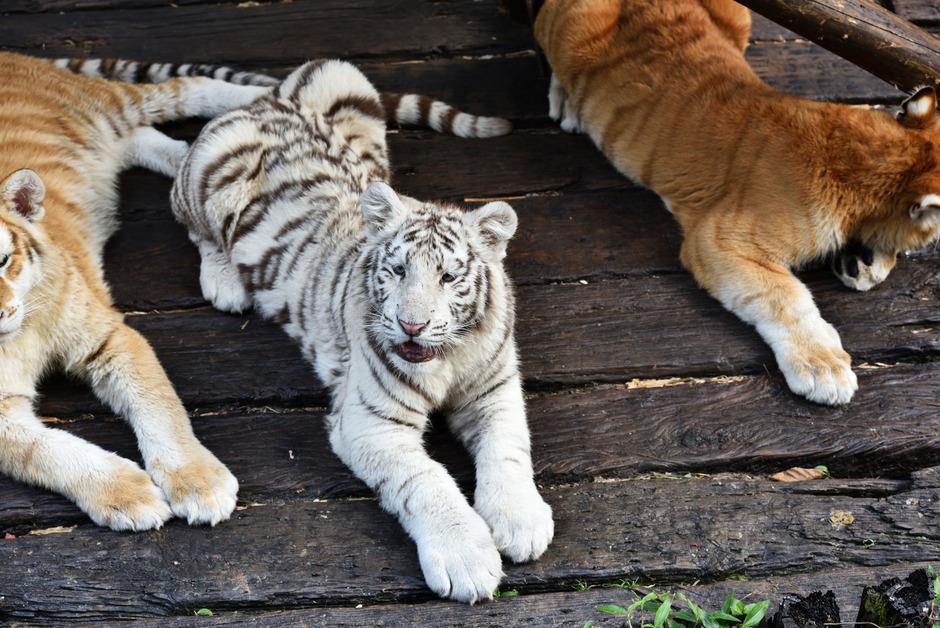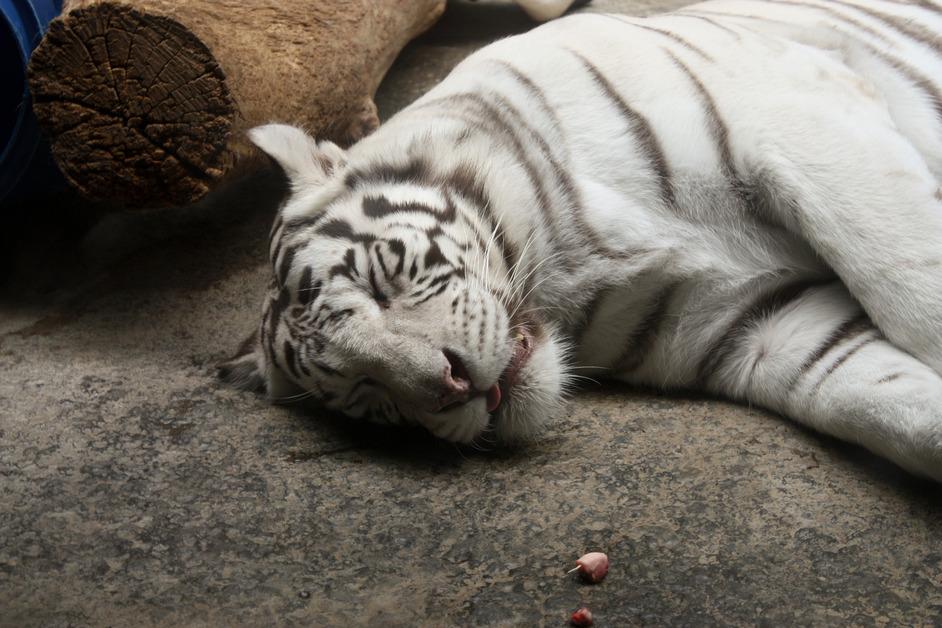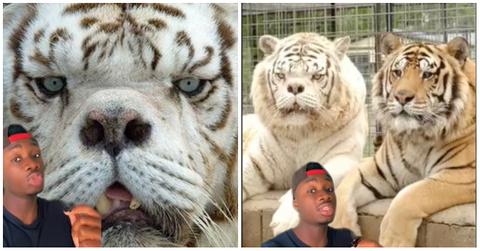Kenny the Tiger's Story: The Truth About White Tigers, a Product of Cruel Inbreeding
Believe it or not, white tigers aren’t a species. The entire population has been built by inbreeding.
Published March 4 2024, 9:56 a.m. ET
Kenny the tiger became popular on the internet as “the tiger with Down syndrome,” because of his unique face. However, Kenny’s story is a lot more tragic and involves a history of abuse and the upsetting reality of white tiger breeding.
A white tiger species does not exist, and all white tigers are a product of inbreeding. Inbreeding can lead to severe health issues and deformities, and animal inbreeding by humans often leads to abandonment, euthanization, and other heartbreaking outcomes. Here is Kenny the tiger’s story.

Did Kenny the tiger have Down Syndrome?
Kenny the tiger became viral online for being known as “the tiger with Down syndrome,” and was often called “the world’s ugliest tiger,” because of his unusual facial features. However, Kenny did not have Down syndrome, and his appearance is actually due to years of abuse and white tiger inbreeding practices, per All That’s Interesting.
According to PR representative for the Florida sanctuary Big Cat Rescue, Susan Bass, white tigers all descended from one original white tiger with recessive genes, who was taken from the wild in the 1950s. This means that all white tigers in existence are a product of years of inbreeding.
As Bass explained to The Dodo, all this inbreeding leads to a host of health issues for most white tigers, including Kenny. "They don't live as long [as other tigers] ... they have kidney problems, they have spine issues," she explained.
Cleft palates, crossed eyes, and facial deformities like Kenny’s are common in white tigers, with some being much more obvious than others. However, this isn’t the saddest part of the story. The reason Kenny stands out so much could be because oftentimes, breeders will keep the perfect-looking cubs and get rid of the rest.
Bass told The Dodo: "To get that one perfect, pretty white cub, it's one out of 30. What happens to the other 29 ... euthanized, abandoned ... who knows."

Kenny the tiger's story:
Kenny was born in 1998 and rescued in 2000 by Turpentine Creek Wildlife Refuge from a tiger farm in Arkansas. According to All That’s Interesting, Kenny’s parents were siblings, and out of the entire litter, he and his brother Willie were the only ones to survive. Willie was born orange, but crosseyed.
The breeder had planned to kill Kenny at birth, but decided against it to appease his son who thought Kenny was cute. When Kenny and Willie were rescued by Turpentine Creek Wildlife Refuge, they were found in cages full of feces and dead chickens.
Animal curator for Turpentine Creek, Emily McCormack told All That’s Interesting that Kenny's former owner told her team that Kenny would would "constantly run his face into the wall." However, "it was clear that that wasn’t the situation," according to McCormack, seemingly implying that his facial deformities were a product of abuse.
However, despite his early years of abuse, Kenny was known to be a lively and happy cat who loved playing and running around. Sadly, Kenny died in 2008 at the age of 10 from a melanoma, per Gentside.
According to Turpentine Creek Wildlife Refuge, it’s important to know that while some white tiger breeders — like magicians Siegfried and Roy — argue they are being "conscientious" in their breeding, no white tiger breeding can be considered moral in any way. This is because every time a white tiger is bred, it continues to damage their gene pool and create a greater likelihood of health problems and deformities.
